ADDING VALUE TO COCOA; ADANSI SWEET MAKES A DIFFERENCE
Writer: Mona Lisa Frimpong and Anita Serwaa Adzoga
Ghana produces approximately 950,000 tonnes of cocoa beans every year.
The premium quality of the beans attracts higher patronage, supplying about a quarter of global production but Ghana produces very little chocolate, a narrative being challenged by a new crop of entrepreneurs.
Ghana imports around US$8 million in chocolate per year, while exporting US$2 billion in cocoa beans.
A void exists in home-grown, home-made and most importantly bean to bar processing industries.
Adansi Sweet seeks to adhere to its core values of adding value to raw materials in hand-made chocolate products.
How the journey started
“Coming from the remote area to the city, I saw lots of cocoa beans being dried by the roadside. I realised cocoa is one of the country’s major export commodity, so, I asked myself, what value can add to what I was seeing?” Winifred quizzed.
Together with her husband, they decided to invest in chocolate production.
“I read books, and bought materials. We started it on our living room, precisely the dining area. We were doing the manual way of chocolate production. We worked in the house for a year,” she said.
Winifred started introducing the chocolates to her friends and with the couple needed a bigger space.
His husband then quit his job to manage the company.
“Again, we realised we were growing and needed a bigger space. We started getting orders from companies.
“He has been very supportive. He manages the company now,” she revealed.
Production process
Adansi sweet have two ways of starting its chocolate production. They either start with cocoa beans or we go in for the cocoa liquor.
The cocoa beans, is sorted out to get rid of spoilt or diseased beans.
“In sorting it out, you take out the good ones and you leave the chaff. Sometimes, you have to check the types, the shapes, because some of them are already infested.
“Others are also cracked. You would not want to spoil the taste of your chocolate, so you try and eliminate all of them.
The beans is then roasted at the right temperature in an oven. Every step of the production process is hand made.
“After roasting, we bring it out and start cracking or winnowing. Everything we do in our production facility is handmade.
“We crack the beans using our hands. When you crack them, you will get the nibs and husks.
Another option is the use of the cocoa liquor, which is sourced from companies. A method which is less stressful.
“The liquor is an already grinded form. However, if you look at the stress you go through in using the beans, we rather prefer using the liquor. This is because the sorting, roasting and cracking processes are eliminated,” she explained.
The varieties
Adansi sweets comes in either the white chocolate, dark chocolate or milk chocolate and then the inclusives.
“The inclusives can be our peanut chocolates, ginger chocolates and coffee chocolates.
Adansi Sweet specialises in premium customised and corporate orders.
It currently focuses on made-to-order chocolates and their specialty, the chocolate chips.
“Currently, we have orders for 250 grams chocolate and chocolate chips. You can easily label the chocolate chips, you can use them for your baking, ice cream toppings, or anything you’d like to do with the chocolate chips.
Pricing
The customised Adansi chocolates ranges from 150 cedis.
It either comes in a pack of 6, 9 or 12 for the 100 grams size.
The chocolate chips come in two sizes. Orders can be made in large quantities.
“For the chocolate chips we have two sizes. The 270-gram size is priced at 40 cedis. The 500-gram size goes for 60 cedis.
“For the 100-gram size chocolate, the daily output is 500 bars per day. For the 50-gram size, it is 1000 bars per day,” she said.
Challenges
Like any other Ghanaian entrepreneur, Mrs. Oppong Marfo faces challenges with intermittent power cuts, high taxes and access to raw materials.
The CEO of Adansi Sweet calls for tax waivers.
“We are not permitted to buy the cocoa beans directly from the farmers. Another thing is, cocoa butter is very expensive in the country. It is a major ingredient in the preparation of chocolate,” she said.
Ghanaians’ acceptance of made in Ghana products is a challenge to Adansi Sweet.
“We send our products to shops and there is no positive feedback. The shelves in supermarkets are rented to us. In about a week or two, you will find out no one has bought any of your products, because they do not know of it,” she revealed.
Adansi Sweets plans on advertising with media houses soon.
However, they fear demand from advertisement may not meet production.
“As a start-up business, it is necessary to channel your finances in production. Currently, we have few equipment. If we start advertisement now, we may not be able to meet the demands,” she said.
Winifred says though there has been training from the NBSSI, the support is not financial.
Mrs. Oppong Marfo encourages Ghanaians to purchase Made in Ghana products.
She entreats people to check the nutritional content of products before purchasing.
“Gradually Ghanaians are accepting Made-in-Ghana products. I encourage Ghanaians to read when they buy any package.
“They have to check the ingredients and nutritional information. Foreign chocolate has lots of ingredients on the label. They contain lots of hydrogenated oils. You can sell other chocolates in the sun, but you cannot sell Adansi Chocolates in the sun.
Adansi are handmade, and it is made to meet certain nutritional or health needs.
“If you are diabetic, we make the chocolate to your specification. In doing that, it is going to be a bit expensive. Your need may not be the need of another person.
“Foreigners buy our chocolates more. That is because our shave more cocoa content. We do not hydrogenated oils to our chocolates. It’s basically the cocoa liquor, cocoa butter, sugar and powder. The fat content in the powder differs, some have 5%, others 20%,” she explained.
Many women spend time accomplishing multiple family demands, limiting the amount of time they can commit to their businesses.
In all these, Winifred Oppong Marfo says a balanced lifestyle is important.
She often stays up late attending to foreign clients.
“I am glad my husband supports me in this business. He is actually the general manager. He does most of the factory work and I handle the customer aspect. It’s a bit challenging being a female entrepreneur, others have done it so I can,” she revealed.
Mrs. Oppong Marfo says Adansi Sweet will be focusing on exports in the future, with the aim of becoming one of the country’s most vibrant chocolate brands.
Currently, the company is undergoing all necessary regulations.
Source: myjoyonline.com




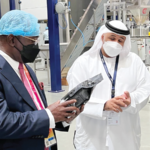
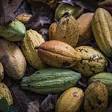
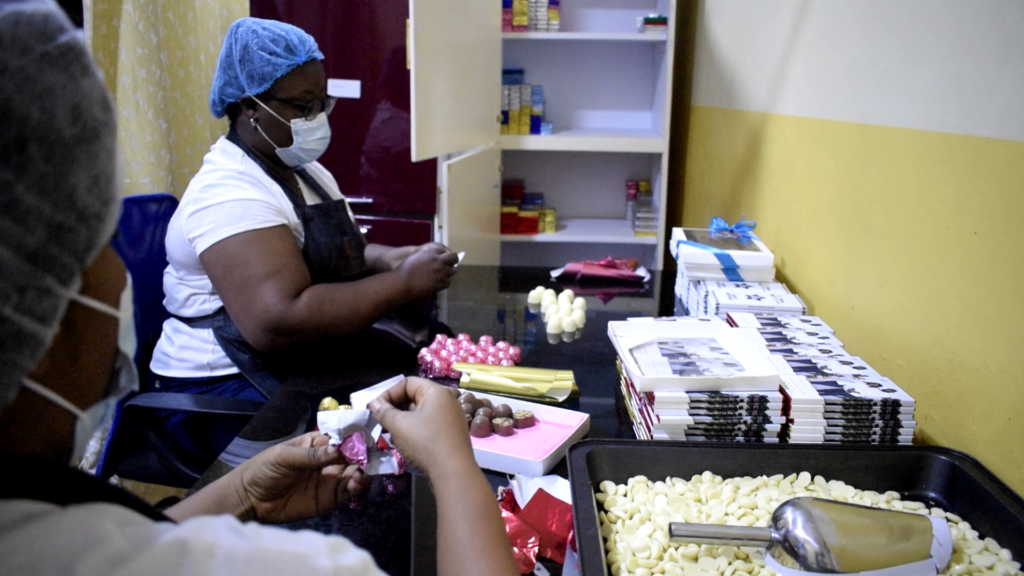
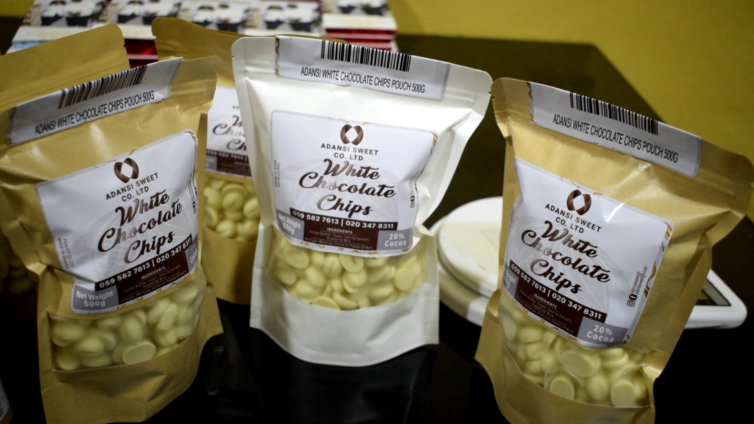
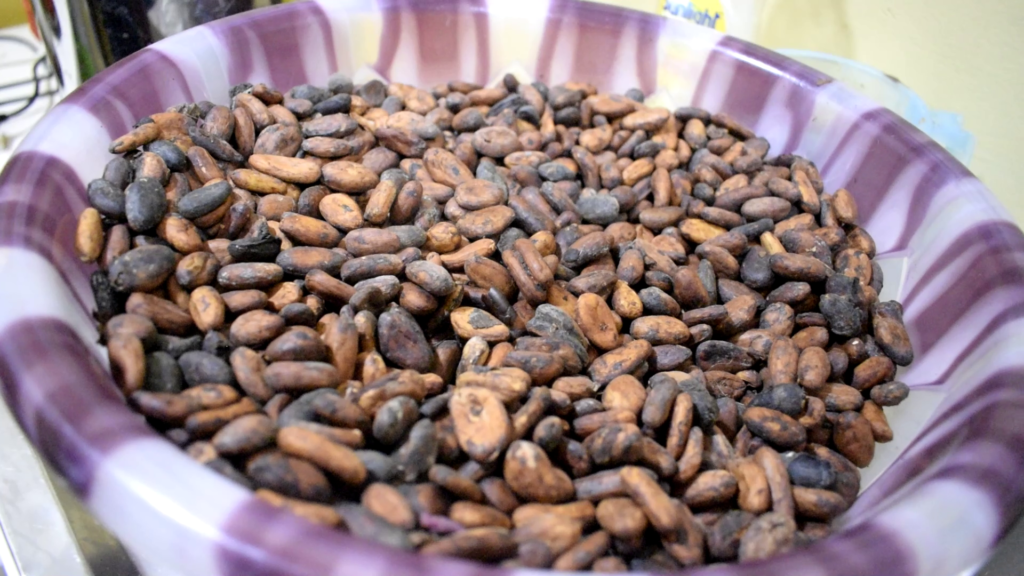
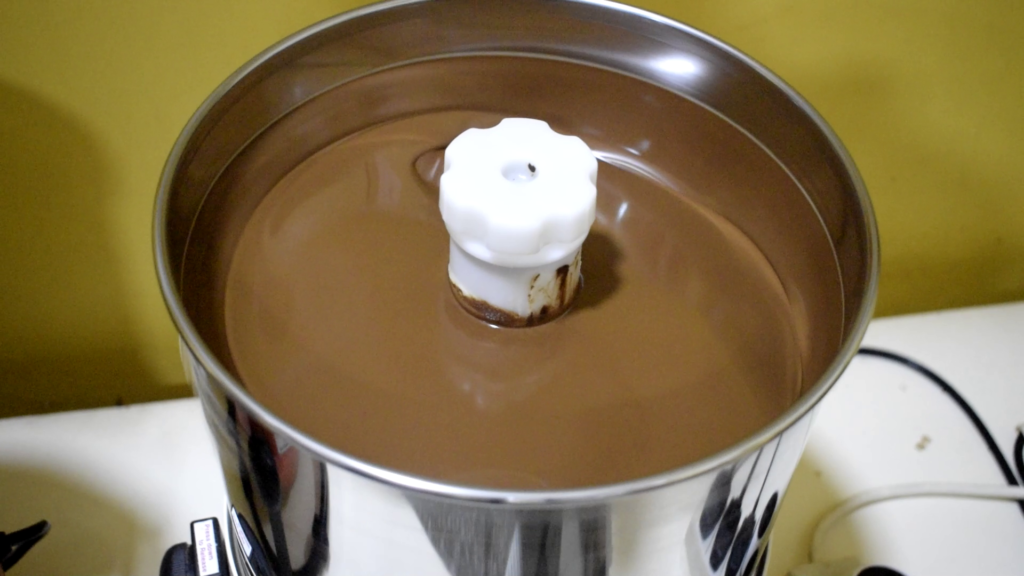

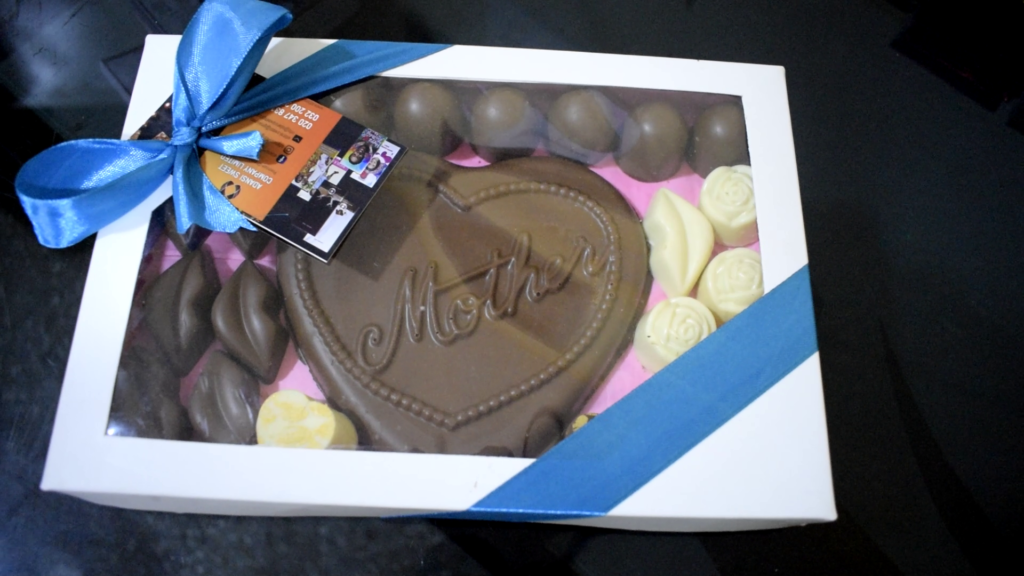
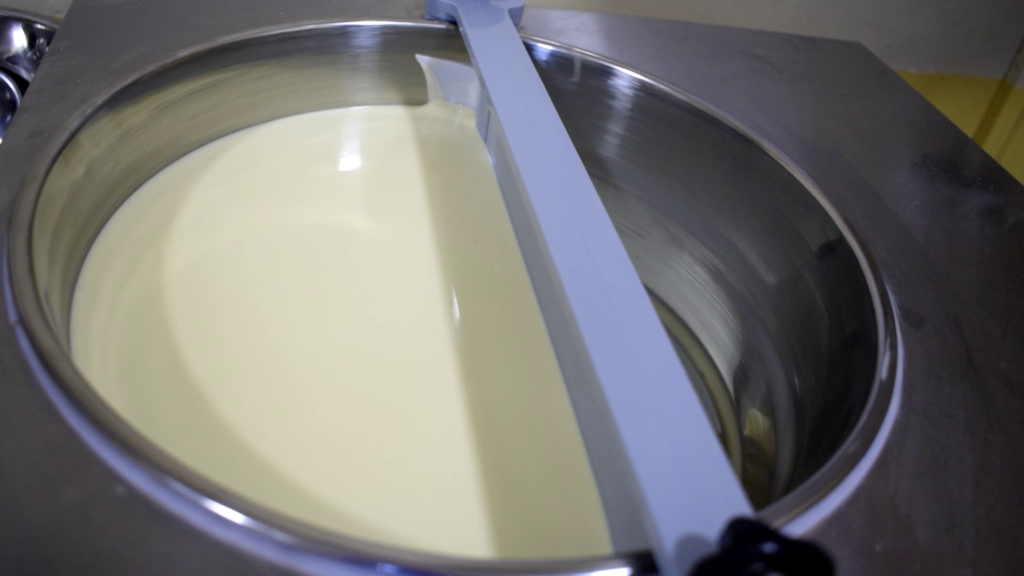



More Stories
COTE D’IVOIRE WANTS TO CAPTURE GREATER SHARE OF COCOA VALUE CHAIN
INTERNATIONAL CHOCOLATE PRODUCERS SHOWCASE SOCIAL AND ECONOMIC SUSTAINABILITY
GHANA-BASED NICHE COCOA TO OPEN FIRST NORTH AMERICAN LOCATION IN FRANKLIN